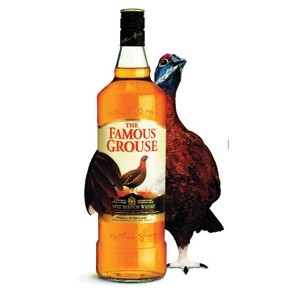Whisky industry swigs bitter dregs of CAP reform

According to the deal, larger farms must grow at least two to three crops, up to 75% of which can be their core crop, to secure special ‘greening’ bonuses beyond basic payments. If they do not, they face stiff financial penalties.
The system, which will be applicable from 2015, is meant to encourage crop diversification. But Scottish farmers supplying malted, or Spring, barley for whisky distilling claim many farms in Scotland are in locations where the conditions make growing other crops extremely difficult.
As a result, the changes will mean Scottish malted barley farmers supplying distillers will have to reduce their prime revenue source and invest in crops that could easily fail.
This would dent earnings and create unnecessary waste in the food supply chain, frustrating industry efforts to slash such surpluses.
“What other two crops are you going to encourage farmers in the north of Scotland to grow, given that 25% of Scotch malt production is north of the border?” asked Nigel Miller, National Farmers Union of Scotland (NFUS) president, during a livelink conference covering the reforms.
‘Grow other crops and it doesn’t work’
“Malted barley and feed barley is an easy crop to grow in the north of Scotland; try to grow other crops and it doesn't work.”
Gwilym Jones, member for international and legal affairs in the European Commission's Agriculture and Rural Development Cabinet, responded: “Look, we need to strike this balance ... we have a decoupled system that leaves farmers to decide which types of crops they want to grow.”
An NFUS spokesman subsequently told FoodManufacture.co.uk: “Our most important arable crop is Spring barley. This notion would drive arable crops in the wrong direction.”
Scotch whisky exports alone generate £4.2bn for the UK balance of trade and contribute £1bn to the Exchequer in taxes, the Scotch Whisky Association (SWA) claims.
“We have noted the CAP reforms and are working with the relevant parties to calculate whether it will impact barley production for the Scotch whisky industry,” a spokeswoman for the SWA told FoodManufacture.co.uk.
Farms exceeding 10 hectares of arable land must cultivate at least two crops, and those exceeding 30 hectares of arable land at least three crops, to secure the ‘greening’ bonuses and avoid penalties.
The NFUS is also at loggerheads with other UK farming unions over the CAP payments it receives. The NFUS wants Scotland to get the full allowance allocated to individual Member States. But under the current system, it gets only part of the UK pot.
Farming unions in England, Wales and Northern Ireland fear cash will have to be taken from their farmers if the Scottish allocation is increased.
Fall at final hurdle
Some food and drink supply chain representatives suggest that, despite unprecedented political consensus, the CAP reforms will fall at the final hurdle of national implementation because of such divisions.
Representatives of food and drink manufacturers have welcomed the other aspect of the CAP reforms of major relevance to the industry: the abolition of sugar quotas by 2017.
Gavin Partington, director general of the British Soft Drinks Association, speaking on behalf of the UK Industrial Sugar Users Group representing food and drink manufacturers, said: “This is a great step forward for the competitiveness of the British manufacturing industry and the tens of thousands of jobs that it supports.
“The next challenge is to ensure that sufficient supplies of sugar are available for industry as long as quotas still exist, and to address the prohibitive import tariffs that restrict access to world markets.”















